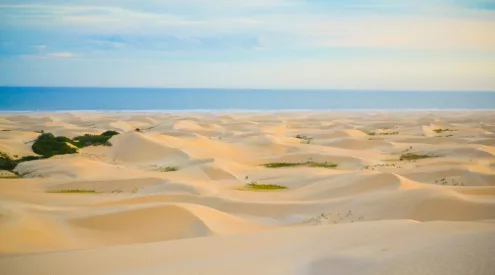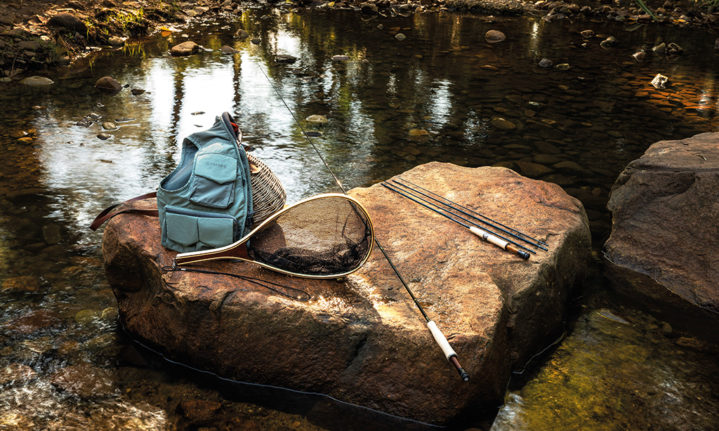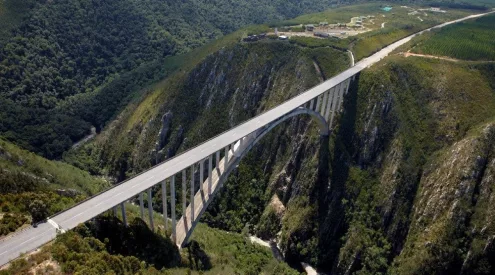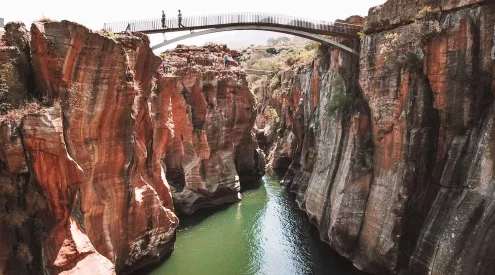Local fly fishing shops have reported an uptick in the sport recently. It’s easy to see why: it’s sustainable, challenging and draws you into nature away from other people. Gear Editor MATTHEW STERNE advises on fly fishing gear that’ll get you started.
Words: Matthew Sterne
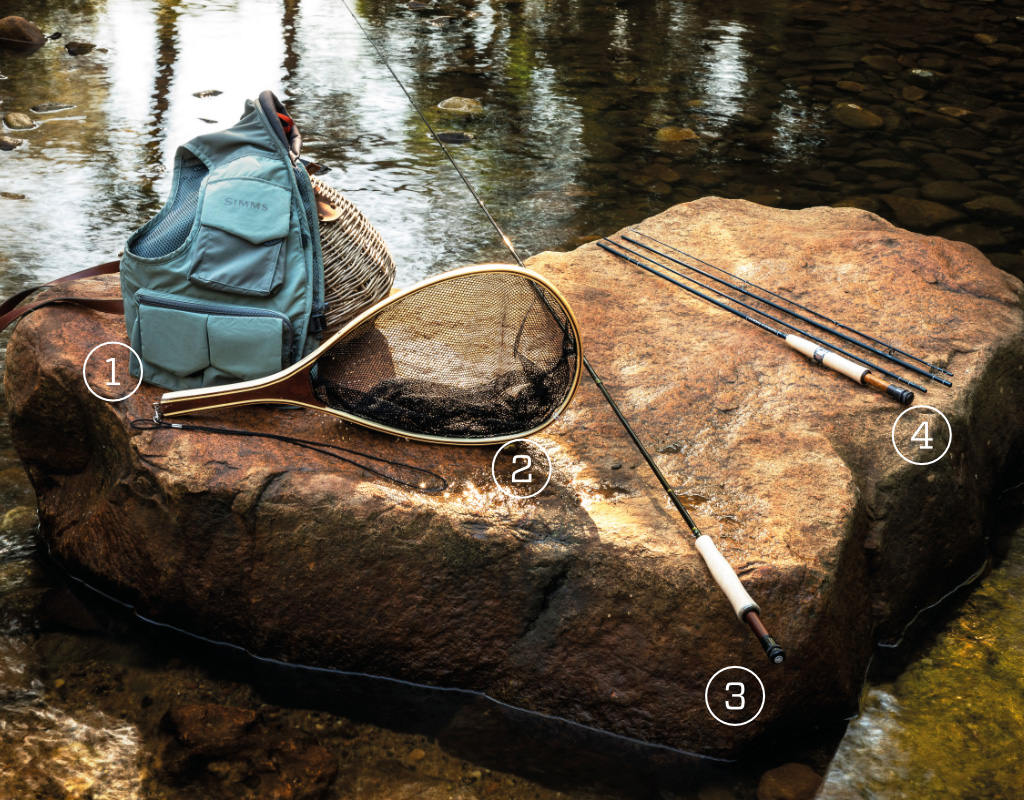
1 | Simms
Freestone Vest
R2 850
There are a number of vests on the market to organise your tackle in smart, slightly different ways. Some come with a tacklebox on your chest, others with attached backpacks for long days, and others with more pockets than a snooker hall. This vest from Simms comes with 19 pockets, a padded rib-knit collar – so it doesn’t chafe your neck – and the option of different sizes, which isn’t that common.
2 | Upstream hard wood mesh net
R395
For scooping up your reeled-in prize. It has a loop to attach to your belt while you fish. Fancier ones float or come with a rubber mesh that doesn’t absorb water as much as this material one.
3 | Horizon TFS
9 foot 5wt
R3 850
Designed in South Africa and made in China, the Horizon TFS series is an entry-level rod for fly fishing in rivers. It’s a 9054, which means it’s 9 foot, 5 weight and
has four pieces. The weighting system goes down from 12 to 1, from heaviest to lightest. The rod packs down into a small, easy-to-carry case.
4 | Thomas & Thomas Avantt
9 foot 5wt
R16 495
A product of the well-renowned brand from the United States, this rod is built by hand with superior materials and craftsmanship. It has the same specifications as entry-level ones but major differences are the way it performs when casting, how light it feels in the hand and its sensitivity when fighting a fish. At close range, the Avantt rod feels like a wand – providing precise command of the fly and surprising power.
Where to fish?
Before the first fly is cast, you’ll need to decide where you want to fish – freshwater or saltwater? If it’s freshwater, is it rivers or dams? This will determine your rod, reel and line. In saltwater conditions, for example, it’s important for reels to be anodised and able to deal with sand and salt getting in the system.
Rivers – The purist’s choice. Potential to catch a lot of fish. There are good fly fishing rivers in every province.
Dams – Can catch big fish, and make for a memorable experience for children.
Saltwater – For the more experienced fly fisher, looking for a new challenge in an estuary or ocean. Tides play a big role and must be considered when planning trips.
Societies and local fly fishing shops
If you’d like to get started, the best idea is to visit your local fly fishing shop (there’s one in every major city) and chat to the staff about getting started. They’ll know where to go, what gear you’ll need and the names of societies, guides and casting instructors that can help introduce you to the sport.

5 | Maui Jim Kanaio Sunglasses
R3 320
A must for any keen fly fisher, shades such as these bronze-lens Kanaios – Maui Jim has particularly good lens technology – can take the glare off water and allow you to track fish better. Built with hidden spring hinges and a lightweight frame, these sunglasses have a comfortable fit.
6 | Xplorer Exo
Fly Reel
R1 185
When you start, an entry-level reel – such as this one from Xplorer – will do. Once you know the specific style of flyfishing you like, you can look for more specialised reels. Made from die-cast aluminum, it has a covered drag system to protect it from debris, and a large spool.
7 | Shilton Reel –
CR Series
R5 100
Manufacturing in South Africa, Shilton produces some of the best reels in the world. This is one of the most popular freshwater offerings in Shilton’s lineup with a rapid, yet smooth, line retrieval and is popular among anglers targeting tiger fish, bass and large salmonid species.
8 | Scientific Anglers Frequency Boost
R1 060
A great all-round line to get you started. Built a half-size heavy, this general-purpose floating fly line loads quickly and features a mid-length head perfect for nearly all freshwater applications.
9 | Scientific Anglers Amplitude Smooth Infinity
R1 880
The Amplitude Smooth series of lines is considered by many to be the best smooth fly lines in the world. With up to five times less drag and eight times the durability of traditional lines, this will change the way you look at fly-line performance. Built a half-size heavy, with a long head and substantial front taper, it’s perfect for chasing monster trout, bass or yellowfish.
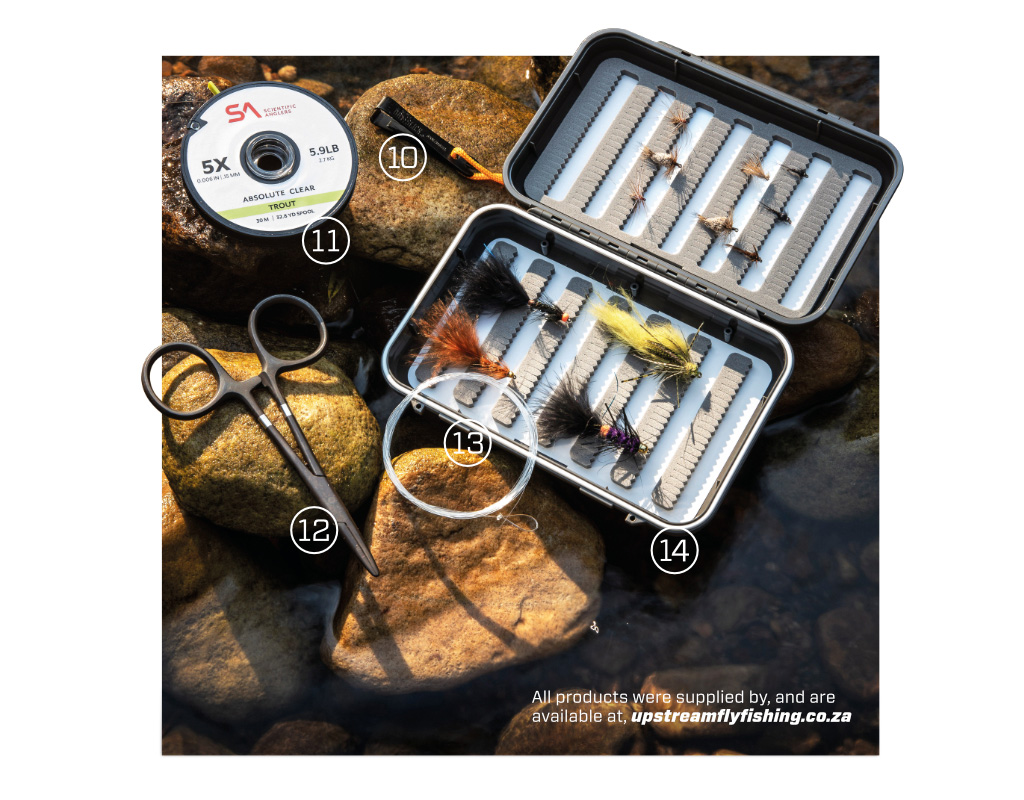
10 | Dr Slick
Nippers NP2
R200
A pair of nippers (or scissors) is needed to cut the tippet when changing flies. The tippet is the line that ties to the fly and is virtually invisible to the fish.
11 | Scientific Anglers Absolute Nylon Tippet
R130
To prolong the life of your leader, and to assist in the presentation of the fly, you can add tippet material to the leader, usually two to three feet at a time. You then tie your fly to the end of the tippet and are ready to splash, roll and stumble your way downriver.
12 | Dr Slick Standard Clamps Straight 5″
R300
A pair of forceps helps remove the hook from a fish’s mouth. Many anglers now fish with barbless hooks, which help reduce the impact of the hook on fish.
13 | Scientific Anglers Absolute Leader
Starting at R120
You can get tapered leaders in various breaking strains to match the type of fish you’re chasing. The thicker end of the leader attaches to the fly line, while the thinner end ties onto a fly or a tippet.
14 | Standard Flies and C&F Medium Waterproof Flybox
R15–R30 and R640
Flyfishing is all about presentation – inconspicuously putting a fly in front of a fish and making it look good enough to eat. Once you get started, you may learn to look under rocks to get a sense of insects in the ecosystem; experienced fly-fishers sometimes even take the odd entomology course to get to grips with these critters. Expect to learn names such as Grizzly Klinkhammer, Royal Coachman, Wooly Bugger and Muddler Minnow.
The spirit of fly fishing
Henry David Thoreau once said, ‘Many go fishing all their lives without knowing that it’s not fish they’re after’. Fly fishermen seem to encapsulate that quote better than others. For many, it’s the remote wild places they’re after as much as the fish. And their pursuit seldom harms those environments as the ethos is catch and release. It’s also the thinking person’s type of angling as you actively try to outsmart the fish, which comes with its own unique thrill. As those wading in the rivers like to say, ‘the tug is the drug’.



